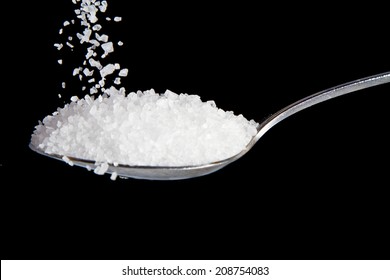In the modern world, sugar has become ubiquitous, sneaking into our diets in various forms and disguises. While it’s undeniable that sugar adds sweetness to our lives, its overconsumption can wreak havoc on our health. In this comprehensive guide, we’ll delve into the intricate relationship between sugar and our bodies, exploring its effects, sources, and the importance of moderation.
1. Sugar: The Sweet Culprit
Sugar, in its various forms such as sucrose, glucose, and fructose, is a simple carbohydrate that provides a quick source of energy. However, excessive consumption of sugar can lead to a myriad of health problems, including obesity, type 2 diabetes, heart disease, and dental decay.
2. The Science Behind Sugar
When we consume sugar, it rapidly enters our bloodstream, causing a spike in blood sugar levels. In response, our pancreas releases insulin, a hormone that helps cells absorb sugar for energy. However, chronic elevation of blood sugar and insulin levels can lead to insulin resistance, a precursor to type 2 diabetes.
3. Hidden Sources of Sugar
Sugar lurks in many unsuspecting foods and beverages, including sodas, energy drinks, fruit juices, flavored yogurts, condiments, and processed snacks. Even foods labeled as “low-fat” or “healthy” may contain high amounts of added sugars to enhance flavor and palatability.
4. Effects of Excessive Sugar Consumption
Consuming too much sugar can have detrimental effects on our bodies. It can contribute to weight gain, promote inflammation, increase the risk of developing metabolic syndrome, and negatively impact liver health. Additionally, sugar can be addictive, leading to cravings and overeating.
5. Sugar and Mental Health
Beyond its physical effects, sugar consumption can also influence our mental health. Research suggests that high sugar intake may exacerbate symptoms of depression and anxiety, disrupt mood stability, and impair cognitive function. Conversely, reducing sugar intake may lead to improvements in mood and overall well-being.
6. Strategies for Reducing Sugar Intake
While cutting out sugar entirely may seem daunting, making gradual changes to your diet can help reduce your overall sugar intake. Start by reading food labels, choosing whole, minimally processed foods, and swapping sugary snacks and beverages for healthier alternatives like fruits, nuts, and water.
7. The Role of Added Sugars
Added sugars, which are sugars added to foods during processing or preparation, are particularly concerning. These sugars offer no nutritional value and can contribute to excessive calorie intake. The American Heart Association recommends limiting added sugar intake to no more than 6 teaspoons (25 grams) per day for women and 9 teaspoons (36 grams) per day for men.
8. The Importance of Moderation
While it’s okay to indulge in sugary treats occasionally, moderation is key. By being mindful of your sugar consumption and making informed choices, you can enjoy the occasional sweet treat without compromising your health.
9. FAQs (Frequently Asked Questions):
Q1: Is natural sugar healthier than added sugar? A1: While natural sugars found in fruits come packaged with fiber and nutrients, added sugars offer no nutritional benefits and should be limited in the diet.
Q2: Are artificial sweeteners a better alternative to sugar? A2: Artificial sweeteners may help reduce calorie intake but should be consumed in moderation. Some studies suggest they may have negative health effects when consumed in large amounts.
Q3: How can I satisfy my sweet cravings without consuming sugar? A3: Opt for naturally sweet foods like fruits, or try using alternative sweeteners like stevia or monk fruit extract in moderation.
Q4: Can sugar consumption lead to skin problems? A4: Some research suggests that high sugar intake may exacerbate skin conditions like acne by promoting inflammation and increasing insulin levels.
Q5: Is honey a healthier alternative to refined sugar? A5: While honey contains small amounts of antioxidants and nutrients, it’s still high in sugar and should be consumed sparingly.

